JOINT BASE LEWIS-MCCHORD, Wash. -- Of the 20 stories of individual courage on a Tucson, Az., softball field last month at the University of Arizona, one of them comes from Joint Base Lewis-McChord.
David Van Sleet, Veterans Affairs Southwest prosthetics manager and softball coach, sent out an announcement of a Congressionally funded training camp through the VA and Wounded Warrior Project Alumni databases seeking athletic, competitive amputee veterans with softball or baseball experience.
He selected Will Silva, a fire prevention officer from JBLM, and 19 others from 200 applicants to participate in a spring softball training camp last month at the University of Arizona.
Silva's athleticism and outgoing personality set him apart from other amputees who applied for the team, Van Sleet said.
"Will is in really good shape, he's very active and he's very competitive, so those things stood out," the coach said. "We got a good recommendation from his prosthetist, so that really helped."
The first-ever Wounded Warrior Amputee Softball Team played an intrasquad game, dividing the 20 amputees into two teams to play in front of about 1,000 people.
It was an event Silva said he will never forget, and one he hopes to experience more of as Van Sleet plans future events. Until then, Silva likes to spend his free time hiking, camping and snowboarding - hobbies he said he never enjoyed until post-amputation.
"I'm pretty much the same person since (the accident) happened, but because of it I've learned to appreciate more of what I do," Silva said. "I'm more of an outdoorsman now, and anything out there that people are doing, I'm going to attempt to do it and figure out on my own if I like it."
Asked how he overcomes the obstacles he encounters as an amputee, Silva looked surprised and puzzled.
"Obstacles' As far as like physical'" he asked.
A motorcycle accident on Feb. 22, 2003, took Silva's leg and changed his life forever, but the fire inspector with JBLM Fire and Emergency Services was determined not to let it define him.
A firefighter at Naval Air Station Joint Reserve Base, Fort Worth, Texas, at the time, Silva was off duty taking his Harley to the local motorcycle shop. While at a complete stop waiting to turn, a truck traveling about 45 mph struck him.
The accident cost Silva most of his left leg, but the effect it had on his morale was hardly damaging. Faced with the option of having his foot reconstructed or removed, Silva chose amputation.
"The doctors explained what was going on and told me that having it reconstructed with rehab would mean a longer recovery," Silva said. "I asked them to take it off so I could go back to work."
Silva never made it back to work as a firefighter, but with help from family and his singular determination, less than four months after the accident he was up and running again - literally. A veteran of the Marine Corps, Silva credits his quick recovery with self-motivation and determination to never give up - both traits instilled during his military service.
While he does not advocate disobeying doctors' orders, Silva stayed in the hospital less than three weeks before he stopped going to rehab and took matters into his own hands. The six months doctors projected for his recovery and adjustment to his new prosthetic simply wasn't in his schedule. Three months later, Silva crossed the finish line of a 10K race in an hour, 11 minutes, 54 seconds.
"It was painful, but I was doing it, which was better than being on crutches," Silva said. "I proved to myself that I was able to move again and keep up with everybody else."
Still, running six miles on his new prosthetic wasn't enough justification for Silva to return to work as a firefighter. Instead, his fire department sent him back to school to become a fire prevention officer, a position that allowed him to continue helping others in the environment he loved. Though he lost the rush of responding to emergency calls and the satisfaction of rescuing others from danger, he finds similar fulfillment in his new position.
"Interacting with the public is a major part of being an inspector, and I love it," Silva said. "I like that I am not only at a desk, but able to get out there and get my hands dirty, to an extent, at construction sites, fires and prevention events."
Since moving to Washington and joining the JBLM fire prevention team in September 2009, Silva has relished opportunities to get "down and dirty," most recently off duty with the softball team.
Fellow JBLM fire inspector, James Lasecki, described Silva as one of the most outgoing people he knows, and a valuable asset to the fire department.
"As long as he can do the job, we don't really care (about his amputation) - and he definitely gets the job done," Lasecki said. "He just goes. He's like a little Energizer bunny."
"I'm a little slower than I used to be, but otherwise I really don't see a difference," Silva said. "I get to park in the front row now - that's about it," he smiled.
Laura M. Levering: laura.may.levering@us.army.mil
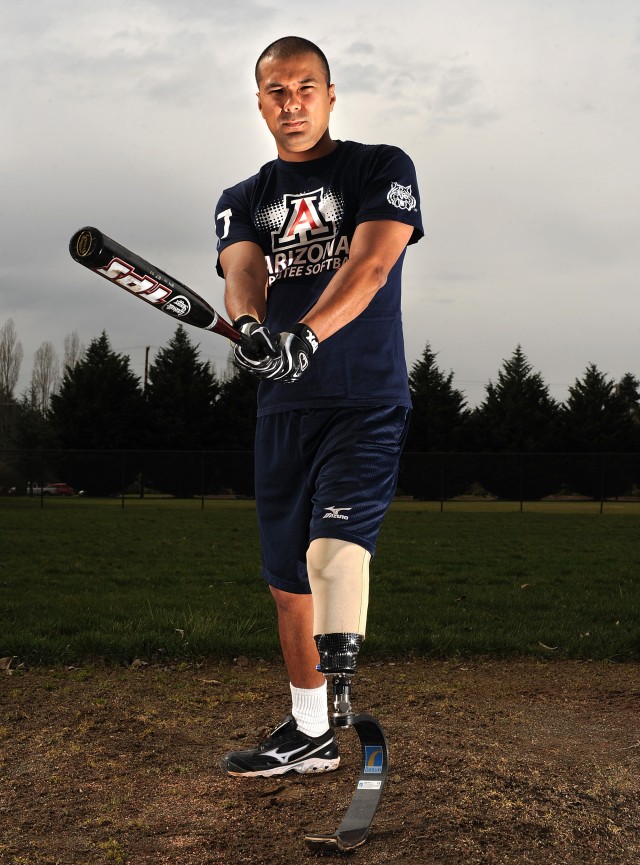
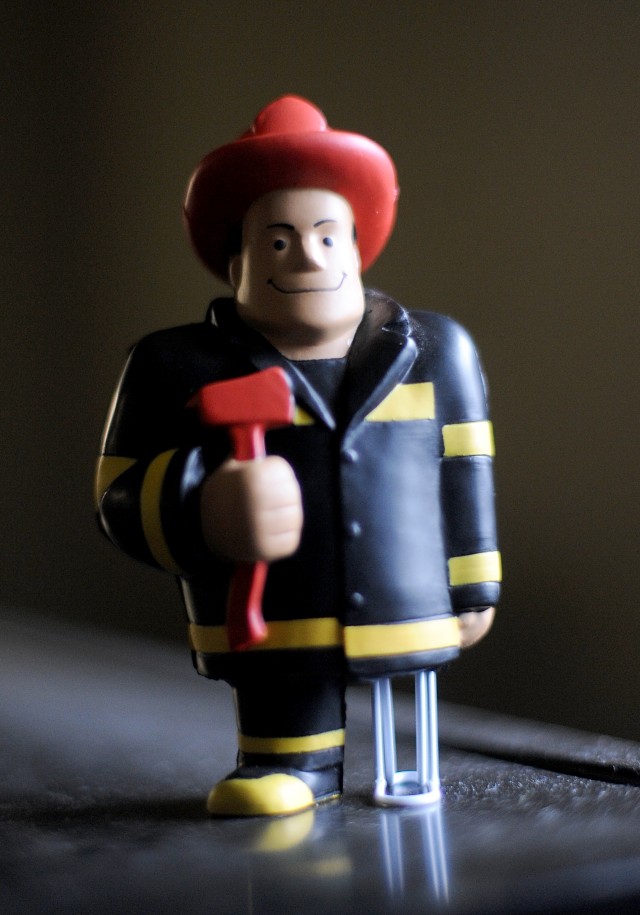
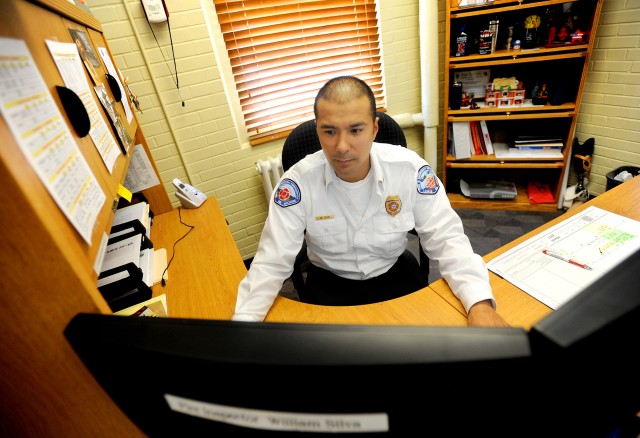
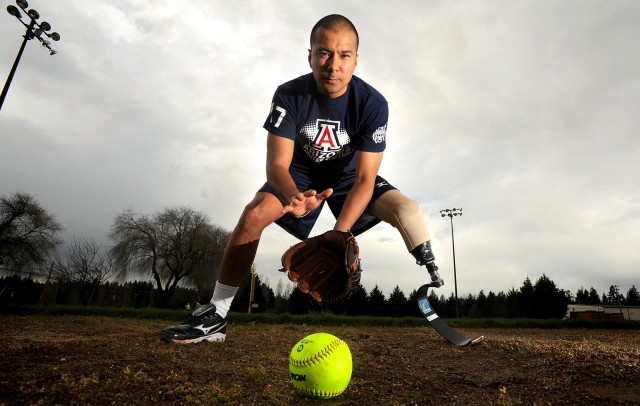
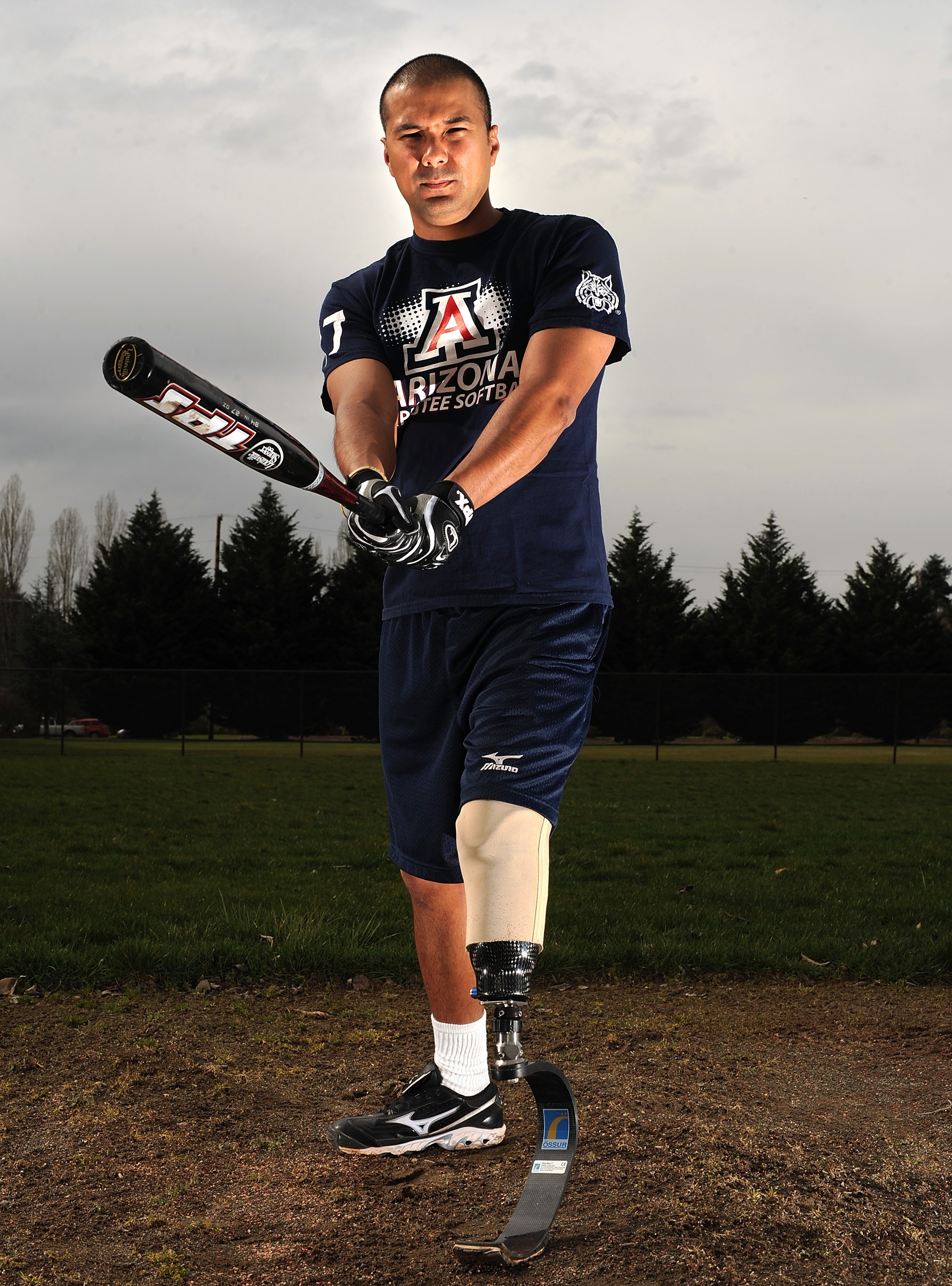
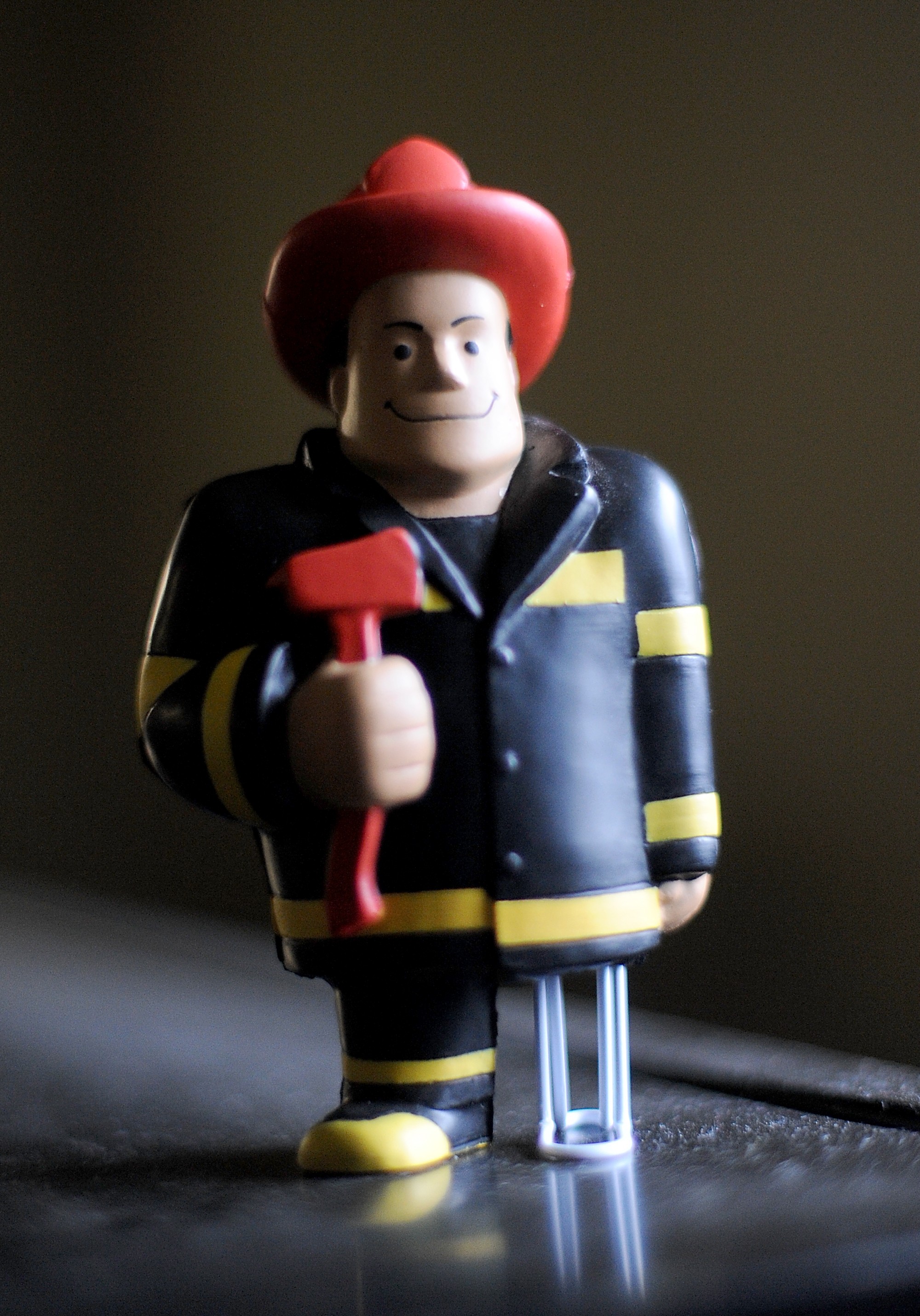
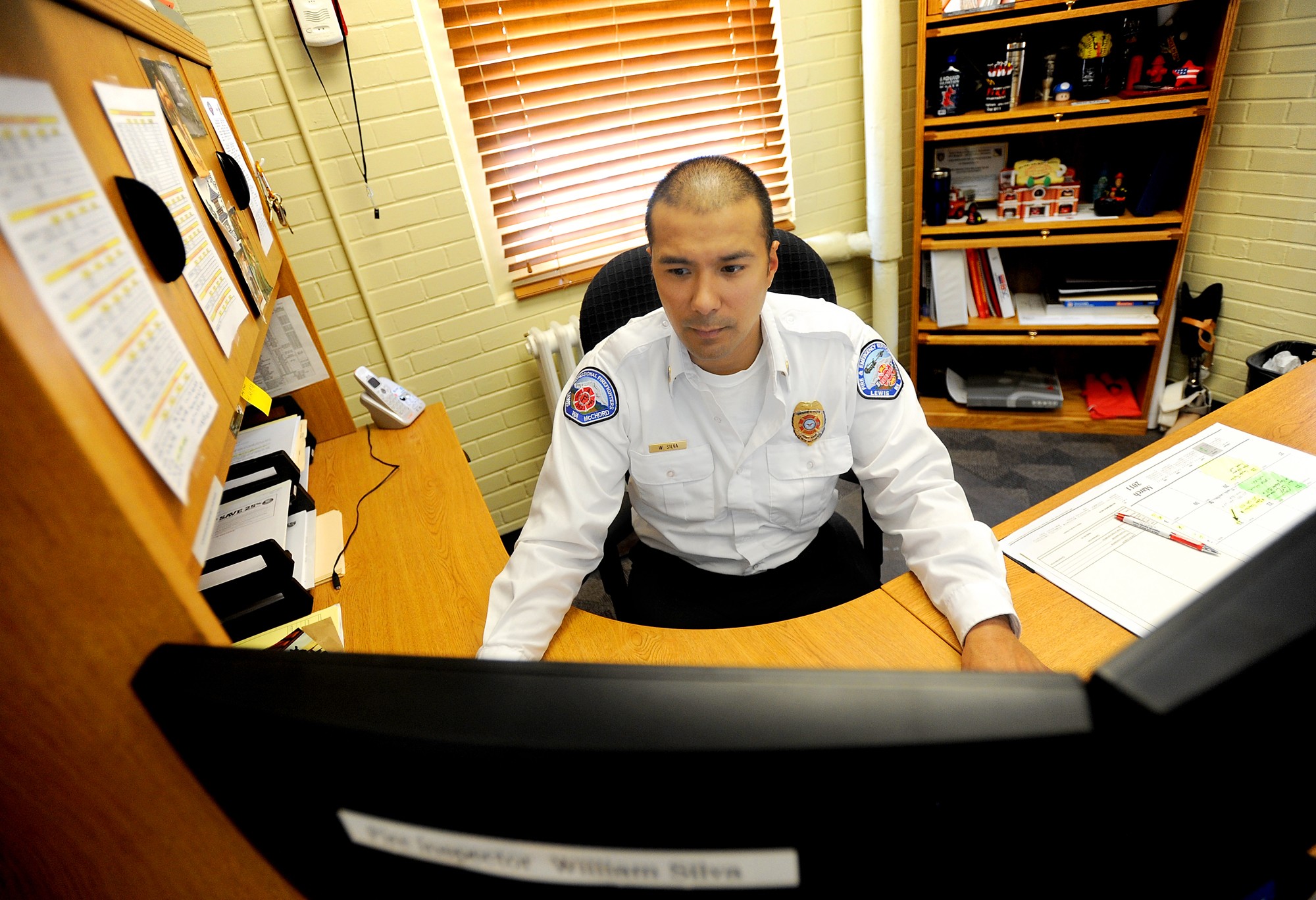
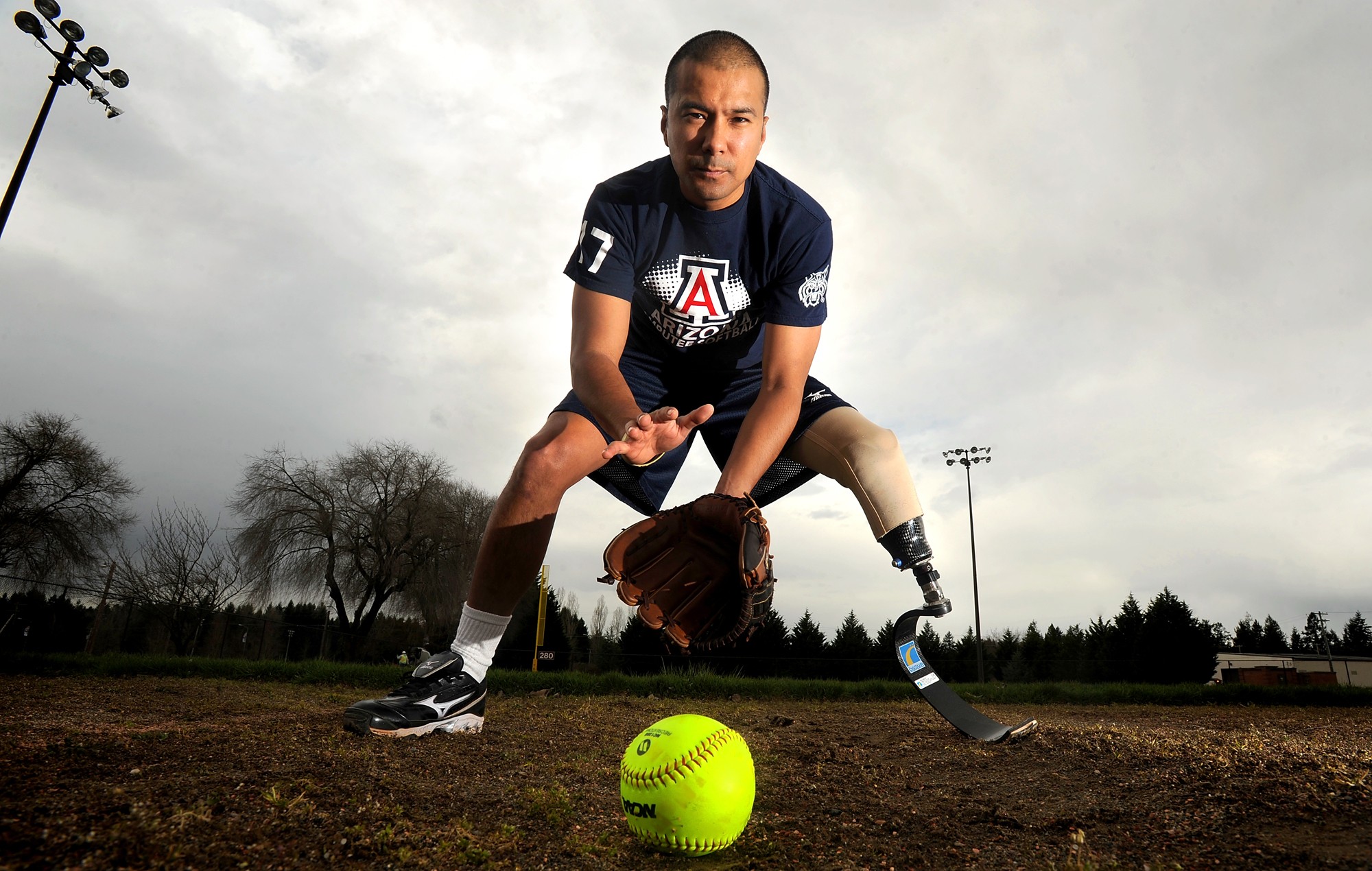
Social Sharing